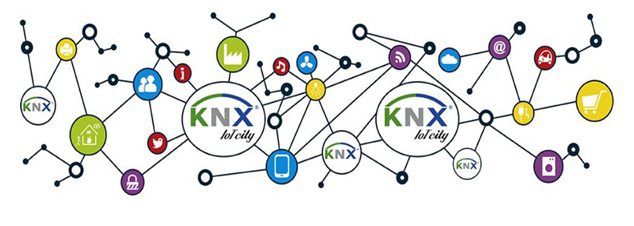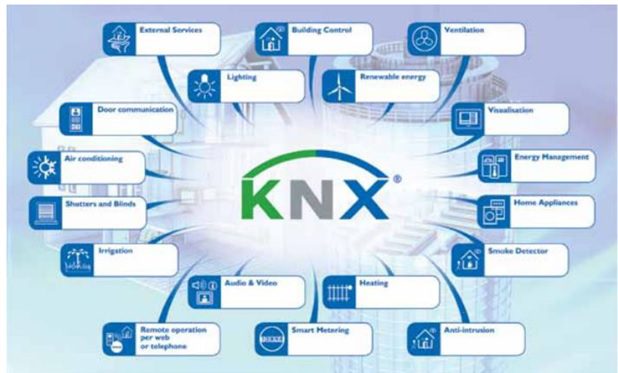Certification of the Computer and Communication Systems Laboratory as a Scientific Partner in the KNX Communication Protocol
The Computer and Communication Systems Laboratory (CCSL) of the Department of Information and Communication Systems Engineering, participating actively in research and in the design and development of new communication systems, was certified in June 2017 as a Scientific Partner in the KNX protocol.
What is the KNX Protocol?
The design and development of Smart Energy Network and the Internet of Things (IoT), combined with the implementation and development of 5th Generation Networks, requires the communication and, in general, the interoperability between energy arrangements that will be able to exchange information and automatically determine mode without human intervention. At the same time, the development of sensor networks actively contributes to this goal by providing real-time communication between the machine and the environment. The “Orchestration” of all the above is realized by the KNX protocol which provides dynamic system integration, which in the modern technological market is called “Systems Integration”. The KNX protocol is a natural follow-up to the European Installation Bus (EIB) and EHS (European Home Systems) and Batibus protocols, and co-authored by 350 manufacturing companies, making it the top protocol in Field Bus.
The physical principle is wired and wireless using twisted pair, Power Line Communications (PLC), Radio Frequency (RF), Ethernet / IP.
KNX is following the worldwide standards ISO / IEC 14543-3, CEN EN13321-1, CEN EN13321-2, CENELEC EN50090, ANSI / ASHRAE (USA) 135, SAC (China) GB / Z 20965, making Future Proof.
Each BUS device is programmed and parameterized by using a PC through an engineering software tool (ETS). With the KNX protocol, it is possible to implement networks from a Smart Home to Smart City.
What is the benefit to the Lab and the Department?
As a Scientific Partner, the CCSL will be able to experiment in the design and development of communications services, both at the physical level and at the network level, as well as at hardware level.
At the same time, in the development of this system, the teaching role of the Laboratory is strengthened, since undergraduate and postgraduate students as well as PhD candidates can participate. With the beginning of the academic year 2017 – 2018 there will be updates and technical meetings to inform the students of the department about the system, but also for the active role they can play in it.
With the introduction to the KNX scientific team, it is possible to use any kind of software used to design and develop new systems, as well as access to the KNX scientific library.








